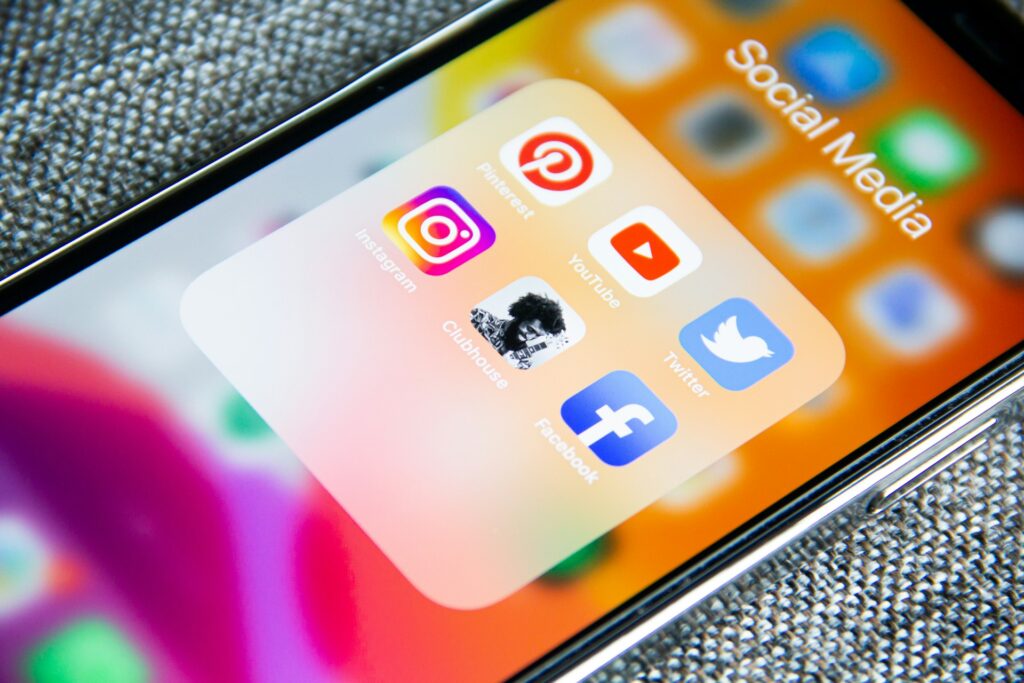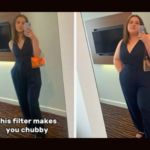By Tara Well
Navigating the digital world without letting it control you.
If you’re Gen Z, social media has been part of your life forever. It’s how you connect, express yourself, and stay in the loop. But endless scrolling isn’t always great for mental health, self-esteem, or body image. So how do we stay in control instead of letting the algorithm shape how we see ourselves?
The Good, the Bad, and the Stressful
Social media can be fun, but research shows it’s also linked to anxiety, stress, and even body image issues. A global study found that excessive social media use is associated with lower well-being and higher psychological distress, especially in places where it’s widely used (Boer et al., 2020).
One big issue? Comparison culture. Constant exposure to curated, filtered, and “perfect” content makes it easy to feel like we’re not enough. Studies show that frequently seeing beauty-focused content can lead to body dissatisfaction and even disordered eating behaviors (Rounsefell et al., 2020). Interestingly, active participation—posting and commenting—can be more harmful than passive scrolling (Rounsefell et al., 2020).
How Social Media Shapes Identity

Social media isn’t just entertainment; it’s also where many people figure out who they are. Platforms like Instagram and TikTok help us explore identity, but they also fuel FOMO (fear of missing out) and social comparison. Research suggests that these platforms shape self-presentation and identity development, sometimes leading to increased anxiety (Throuvala et al., 2019).
Taking Back Control: Social Media Survival Guide
You don’t have to quit social media to make it a healthier space. Here’s how to take control:
Think before you believe – Not everything online is real. Learning to analyze content critically—especially posts about beauty and lifestyle—can help protect your mental well-being (McLean et al., 2017).
Understand the algorithm – Your feed isn’t random. Social media platforms curate content to keep you hooked, often reinforcing unrealistic beauty standards (Rader & Gray, 2015). Recognizing this helps you engage more mindfully.
The Bottom Line
Social media isn’t all bad—it’s a tool, and how we use it matters. Instead of letting it shape how we feel about ourselves, we can take charge, engage critically, and use it in a way that supports mental health rather than harms it.
The future of social media is still being written. Let’s make it a space that empowers rather than drains us.
Copyright 2025 Tara Well PhD
References
Boer, M., Stevens, G. W. J. M., Finkenauer, C., de Looze, M. E., & van den Eijnden, R. J. J. M. (2020). Social media use intensity, social media use problems, and mental health among adolescents: Investigating directionality and mediating processes. Computers in Human Behavior, 113, 106475. https://doi.org/10.1016/j.chb.2020.106475
Carrier, L. M., Spradlin, A., Bunce, D., & Rosen, L. D. (2015). Virtual empathy: Positive and negative impacts of social media on empathy. Computers in Human Behavior, 52, 39–48. https://doi.org/10.1016/j.chb.2015.04.053
Fardouly, J., & Holland, E. (2018). Social media use and body dissatisfaction in adolescents: Testing mediational pathways. Psychology of Popular Media Culture, 7(4), 407–415. https://doi.org/10.1037/ppm0000148
McLean, S. A., Paxton, S. J., & Wertheim, E. H. (2017). A body image intervention for adolescents delivered in schools: Two pilot studies. Body Image, 22, 76–85. https://doi.org/10.1016/j.bodyim.2017.06.004
Rader, E., & Gray, R. (2015). Understanding user beliefs about algorithmic curation in the Facebook News Feed. Proceedings of the 33rd Annual ACM Conference on Human Factors in Computing Systems, 173–182. https://doi.org/10.1145/2702123.2702174
Rounsefell, K., Gibson, S., McLean, S., Blair, M., Molenaar, A., Brennan, L., Truby, H., & McCaffrey, T. A. (2020). Social media, body image and food choices in healthy young adults: A mixed methods systematic review. Nutrition & Dietetics, 77(1), 19–40. https://doi.org/10.1111/1747-0080.12581
Tamplin, N. C., McLean, S. A., Paxton, S. J., & Wertheim, E. H. (2018). Selfie-enhancement and social comparison: Examining their relationship to body dissatisfaction and quality of life in adolescent girls. Journal of Youth and Adolescence, 47(8), 1531–1545. https://doi.org/10.1007/s10964-018-0858-1
Throuvala, M. A., Griffiths, M. D., Rennoldson, M., & Kuss, D. J. (2019). School-based prevention for adolescent internet addiction: Prevention is the key. Education and Health, 37(1), 15–18.
Twenge, J. M., & Campbell, W. K. (2019). Media use and mental health: Examining the impact of social media, video gaming, television, and electronic communication on well-being. Clinical Psychological Science, 7(3), 537–554. https://doi.org/10.1177/2167702619828548
Vraga, E. K., & Tully, M. (2019). News literacy, social media behaviors, and skepticism toward information on social media. Information, Communication & Society, 22(2), 200–214. https://doi.org/10.1080/1369118X.2017.1367333
Fact-check everything – Misinformation spreads fast, especially in beauty and health trends. Checking sources can help prevent the likelihood of falling for misleading advice (Vraga & Tully, 2019).
Be mindful about what you post – Your content affects others. Studies show that being more intentional about online posts can create a healthier digital space (Tamplin et al., 2018).
Practice digital empathy – Behind every profile is a real person. Developing digital empathy can help reduce cyberbullying and promote positive online interactions (Carrier et al., 2015).
Balance online and offline life – Social media isn’t real life. Engaging in offline activities strengthens self-confidence beyond the screen (Twenge & Campbell, 2019).
Recognize media manipulation – Filters, Photoshop, and staged content create illusions. Learning to spot media manipulation can reduce its impact on self-esteem (Fardouly & Holland, 2018).
Tara Well, Ph.D., is a professor in the department of psychology at Barnard College of Columbia University.
Originally published at Psychology Today














